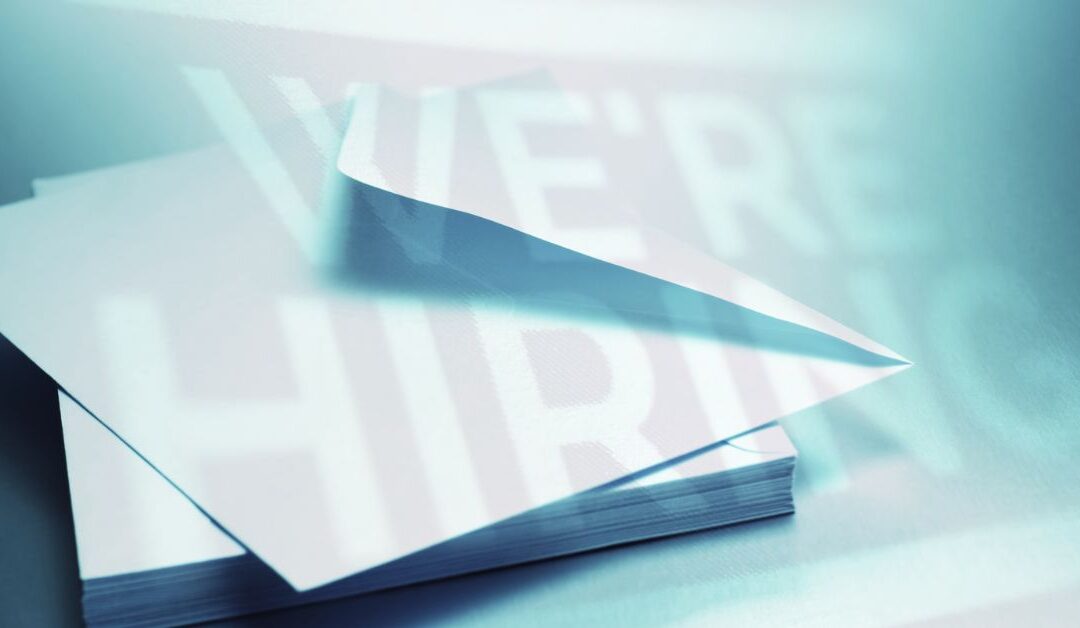Want to ace your first job interview?
When you get your first invite to interview, it’s both an exciting time and a nervous time. It’s like your first day at school, college or university. You are excited because having a job means having some independence, some cash in your pocket and a sense of purpose. You’re nervous because you don’t know what to expect, and you don’t really know how or what to prepare. So, how do you prepare for your first job interview?
[bctt tweet=”How do you prepare for your first job interview? You have more to share with the interviewers than you think! #interviewtips #firstjobinterview #jobinterview” username=”InterviewCoachD”]
Typical interview structure
There are a variety of styles and formats of the interview. Skype and Video are the most popular and common right now while we try to maintain social distance.
There are also telephone interviews, panel interviews and assessment centres. Anyone of these interviews could be formal or informal and of course, there are differences but there are some similarities in terms of preparation.
Let’s first look at a typical interview structure. Regardless of what type of interview you are attending, it’s generally going to have some sort of structure. Start, middle and an end! Understanding the typical structure of an interview will most definitely help you prepare.
Structure of an interview:
- Introductions and reasons for the job becoming available (new job or replacement)
- Briefly talk through the interview process and what to expect
- Talk through information on CV
- Common questions (What attracted you to this role and why the company?)
- Job-related questions – technical competencies and behavioural competencies
- General housekeeping questions to finish (Salary expectations, notice period, holidays booked etc.)
- Talk through the job in more detail and an introduction to the company history
- Ask the candidate if they have any questions
- Next steps (2nd interview, when they will make a decision etc).
Introductions: The interviewers should introduce themselves and let you know their role within the organisation. Therefore, you should know if the person you’ll be reporting to every day is there at the interview. It is useful to understand if the person is from HR or an in-house recruiter. It’s useful because they are there to ensure the process is objective and fair.
Talk through the interview process: A good recruiter wants to manage your expectations, put you at ease and get the best out of you. So, rather than launch straight into the questions, they will make sure you know what to expect, and the type of questions they are going to ask.
CV questions: The interviewers will start by asking some general questions and allow you to talk through your career history. It should be fairly easy to talk through your career history and it’s a good way of starting the conversation. This is why it’s important to be familiar with the information on your CV. Be prepared to talk through in more detail anything you’ve shared on your CV.
General common questions: There are lots of different common questions however, there are also the standard interview questions that come up time after time. Here are a few to expect and prepare for:
- Tell us a little bit about you?
- What attracted you to this vacancy?
- Have you researched our company and what have you found out?
- What will you bring to the job?
- What are your strengths and weaknesses?
Job-related questions
If you are applying for a job that requires absolutely no work experience, then they may ask about your understanding of the role and what you expect to be involved in. This will check whether you have read the job description and to be able to fill in any gaps in your knowledge. The interviewers may still ask some job-related questions to understand your capability.
Behavioural competency questions
It’s really important you understand behavioural competencies. You do not need any work experience to be able to demonstrate behavioural competencies. So, don’t miss this opportunity to prepare some examples of times you’ve demonstrated behaviours essential for the vacancy you are applying.
Here are some typical behaviours required for most jobs:
- Communicate and presentation skills
- Working as a team player
- Relationship building skills
- Interpersonal skills
- Planning and organising
- Customer service skills or client orientation
Where have you demonstrated these behaviours before?
- School projects or activities or clubs after school
- College projects and teamwork
- University studies, projects and assignments
- Community projects or schemes
- Volunteering
- Shop work or paper rounds
- Sports events or clubs
- Hobbies and interests
It’s worth mentioning this point again, you don’t need work experience to be able to demonstrate behavioural competencies. You can also demonstrate behavioural competencies without going to college or university. It’s possible to gain valuable experience while volunteering, being involved in sports activities or being a member of a club.
If you haven’t done any of the above, you need to seriously consider volunteering. There are so many different opportunities to volunteer, so choose something you really enjoy. You can work in a shop or support an event or work for a local or national charity.
Volunteering case study
Volunteering is a great opportunity to firstly, give something back to the community, and help raise money and awareness of a cause. Secondly, it’s a great opportunity to gain valuable skills and experience. Interviewers won’t be expecting you to have any or much work experience when you attend your first job interview.
Let’s take Race for Life as an example. At Race for Life, the health and safety of the participants are paramount. So, the volunteers are the eyes and ears of the event organizers. We are there to meet and greet the participants, engage, communicate, empathize, guide, and keep safe. There are lots of behaviours we are applying throughout the day.
Here are a few behavioural competency requirements:
Communications skills: Listening to instructions, communicating to participates and other volunteers, etc.
Customer services: Looking after the participates is a key duty while volunteering. Supporting the participates with the route, listening to their stories, supporting the cause, and offering guidance to keep them safe.
Observation skills: Keeping alert about potential hazards, the welfare of the participates, obstacles, or anything out of the ordinary.
How do you prepare for your first job interview?
You can use the S.T.A.R. technique to give you some structure. The situation, Task, Action, and Result. Continuing with the volunteering example above, let’s see what it looks like using the S.T.A.R process.
Situation: Describe the situation to the recruiters. Explain the nature of the Race for Life events and the purpose of the events to raise money and awareness for cancer research.
Tasks and actions: Talk through the main role of the volunteer. Let the interviewers know that you are there to ensure the participates are safe and enjoy the experience of walking, jogging, or running the race and feel valued for taking part in a worthy cause.
Explain to the interviewers you are there to help with the setting up and de-rigging of the site. Let them know there are 5K and 10K events. Your role involves keeping the site clear of obstacles, rubbish, and trip hazards.
You also need to regularly communicate with the events manager to ensure they know exactly where the lead runner and backmarker are at all times. Report any incidents, accidents, or emergencies. Helped set up the event, ensuring all the equipment was put up correctly and safely, was on time for the volunteer briefing and took onboard instructions on safety, emergency procedures, how to use a two-way radio, etc.
Results: The day went smoothly with no incidents. Was able to regularly communicate and report the progress of the race. Interacting well with the participants. Raised £xxx for charity.
Final thoughts
Start considering the various activities, clubs, and volunteering you are involved in and think about what behaviours you use.
Write up the tasks, duties and the other people involved:
- How did you communicate with each other, how did you work together as a team to get things done?
- Did one person naturally take the lead?
- How did you execute instructions?
- Were there any challenges or barriers you faced?
- What were the results of working together?
- Did you learn anything new?
- Did you use a new piece of equipment or a system or tool?

Mastering the Art of Preparation: A Guide to Nailing Tough Job Interviews
Facing a tough job interview can be daunting, but with the right preparation, you can turn it into a rewarding opportunity. Whether it's your dream job or a crucial career move, adequate preparation is the key to success. In this guide, we'll walk you through the...

The Art of Crafting an Effective Cover Letter
What is a Cover Letter and Why Should You Include it With Every Application? In today's competitive job market, job seekers often find themselves in a sea of resumes, all vying for the same opportunities. To stand out from the crowd and make a lasting impression on...
First job interview: Things you can do that will make the difference
These are all quick and easy wins when you attend your first job interview. All these things below are within your control and will contribute to making a good first impression. Of course, you cannot control if you get stuck in traffic or the train is late but being prepared just in case that happens is within your control.
Dress smart: We don’t mean for you to go out and get yourself measured for a new three-piece suit. It’s unreasonable to spend lots of money when you haven’t got a job yet. However, you can make a special effort with your appearance and make sure you are well-groomed.
Be polite: This is an easy one! Be friendly and polite to everyone you meet throughout the process. Answer your mobile phone appropriately. Be professional when answering emails. Talk to the receptionists, the security guards, and anyone else you meet during the process.
Be punctual: This is one of those common-sense tips. Of course, you are going to do your very best not to be late. However, if you anticipate you may be late, because you are stuck in traffic, or the train is delayed, contact the interviewers or receptionist before you are actually late. Always offer to re-schedule. Most recruiters are extremely busy and may have back to back interviews.
CV copies: Take along a couple of copies of your CV. Good recruiters will have a copy already printed off. However, it shows you’ve thought of others and you’ve prepared.
Keep on keeping on
Good luck and best wishes in your first job interview and we hope you land the job. If you don’t land it the first time, keep going and learn from each interview experience.


Recent Comments